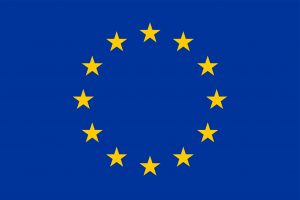On November 5, 2018, OFAC announced a large number of Iran-related sanctions designations and issued guidance on the end of the 180-day wind down period. The announced list of Specially Designated Nationals (SDNs) both reinstated prior sanctions that had been suspended during implementation of the Joint Comprehensive Plan of Action (JCPOA) and added several new parties. In addition, the revisions to the Iranian Transactions and Sanctions Regulations announced on Friday, November 2 went into effect on November 5.
Overall, the U.S. government continues to follow the plan of action outlined on May 8, 2018. However, the Administration and OFAC made a number of important clarifications.
Sanctions Designations
According to an announcement by U.S. Treasury Secretary Mnuchin, OFAC is sanctioning over 700 individuals, entities, aircraft, and vessels. This included re-listing of individuals and entities that had been granted sanctions relief under the JCPOA, as well as over 300 new sanctions designations. OFAC is targeting Iran’s banking, energy, aviation and shipping sectors.
OFAC stated that it has listed more than 70 Iran-linked banks and their foreign and domestic subsidiaries. All Iranian financial institutions are subject to sanctions under Executive Order 13599. Under the JCPOA, many of these financial institutions were listed under a separate E.O. 13599 List maintained by OFAC which indicated they were blocked for U.S. persons, but not subject to secondary sanctions for non-U.S. persons. As of November 5, 2018, OFAC has removed the E.O. 13599 List and issued individual sanctions designations for a large number of Iranian financial institutions. For non-U.S. persons, secondary sanctions apply to significant transactions with SDN banks, but not to Iranian financial institutions that are not individually designated as SDNs.
In addition, OFAC also has applied SDN designations to:
- More than 200 persons and vessels in the Iran shipping and energy sector;
- Iran Air (Iran’s national airline), along with more than 65 of its aircraft;
- The Atomic Energy Association of Iran; and
- Several persons on the E.O. 13599 List for being identified as “Government of Iran.”
These designations are added to other recent designations of Iranian parties, including the October 16, 2018 announcement of sanctions on the Basij Resistance Force and its network of fronts and related companies.
Amendment to the Iranian Transactions and Sanctions Regulations
As mentioned in our previous post, the regulatory amendments to the Iranian Transactions and Sanctions Regulations will authorize sanctions upon a determination that:
- On or after August 7, 2018, a person has materially assisted, sponsored, or provided financial, material, or technological support for, or goods or services in support of, the purchase or acquisition of U.S. bank notes or precious metals by the Government of Iran; or
- On or after November 5, 2018, a person has materially assisted, sponsored, or provided financial, material, or technological support for, or goods or services in support of, the National Iranian Oil Company (NIOC), Naftiran Intertrade Company (NICO), or the Central Bank of Iran.
OFAC also amended a pre-existing general license allowing U.S. persons to sell real property in Iran provided it was acquired before the individual became a US person or was inherited from persons in Iran. The general license has been expanded to include personal property subject to the same conditions.
Petroleum Transactions
Transactions in petroleum and petroleum products of Iran will be subject to broad U.S. primary and secondary sanctions, and key companies such as NIOC and NICO are SDNs subject to secondary sanctions for significant transactions. During a telecom briefing on November 2, 2018, U.S. Secretary of State Pompeo stated that the administration would grant waivers for eight countries under section 1245(d)(4)(D) of the NDAA 2012 to continue purchasing Iranian oil. Thus, the U.S. government will reinstate the system that had existed prior to the JCPOA to grant waivers of secondary sanctions for certain countries to purchase petroleum from Iran where committing to reduce overall purchases, with certain restrictions applying to the purchase funds. Some reports indicate that the countries will include China, India, South Korea, Japan, Italy, Greece, Taiwan and Turkey. Waivers must be renewed every 180 days.
Guidance on Transactions Completed During the Wind-Down Periods and Other New Transactions
OFAC has provided updated FAQ guidance on the receipt of payments for transactions completed during the wind-down periods and certain other transactions.
- The provision or delivery of goods or services and/or the extension of additional loans or credits to an Iranian counterparty after November 4, 2018 — even pursuant to written contracts or written agreements entered into prior to May 8, 2018 — may result in the imposition of U.S. sanctions unless such activities are exempt.
- Non-U.S. persons (other than Iranian persons) may receive payment for certain deliveries of goods, services, loans, or extension of credit, where (a) fully provided or delivered prior to the end of the relevant wind-down period; (b) conducted pursuant to contracts or written agreements signed before May 8, 2018; and (c) consistent with U.S. sanctions policy at the time. OFAC clarified that payments may not involve U.S. persons, the U.S. financial system or other activity in the United States unless the transaction is otherwise exempt or authorized by OFAC. Further, OFAC stated in FAQ 636 that “payment for activities undertaken during the wind-down period that involves a person added to the SDN List should seek guidance from OFAC or the State Department, as appropriate.” Goods or services will be considered fully provided or delivered consistent with “industry standards” and generally the party providing or delivering the goods or services must have performed all actions or satisfied all obligations necessary to be eligible for payment or other agreed-to compensation.
- U.S. persons and non-U.S. entities under the ownership or control of U.S. persons may not receive payment on or after November 5, 2018 for activities conducted pursuant to wind-down authorizations unless authorized by general or specific licenses.
- General licenses continue to apply for certain transactions for the sale of agricultural commodities, food, medicine, or medical devices to Iran (and other general licenses for Iran continue in effect).
Additional guidance or announcements may issue in the coming days. Companies should monitor the potential impacts of the November 5, 2018 sanctions listings and announcements.
 On December 8, 2021 the EU Commission published its proposal for a new “Anti-Coercion Instrument.” The regulation is being proposed in response to targeted deliberate economic pressures applied to the EU and its Member States in recent years and seeks to deter countries from restricting or threatening to restrict trade or investment to force the EU (or individual Member States) to change their policies in areas such as climate change, taxation and food safety.
On December 8, 2021 the EU Commission published its proposal for a new “Anti-Coercion Instrument.” The regulation is being proposed in response to targeted deliberate economic pressures applied to the EU and its Member States in recent years and seeks to deter countries from restricting or threatening to restrict trade or investment to force the EU (or individual Member States) to change their policies in areas such as climate change, taxation and food safety. Global Trade & Sanctions Law
Global Trade & Sanctions Law


